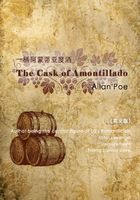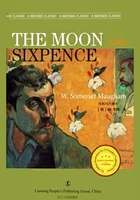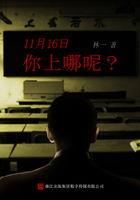ROANNE AND SAINT-éTIENNE, JUNE 1844
The sky was full of stars and a richly scented summer breeze was blowing the night that Flora arrived in Roanne from Lyon, on June 14, 1844. At her boardinghouse, unable to sleep, she sat staring out the window at the blazing firmament, but her thoughts were all of Eléonore Blanc. If every poor woman were as energetic, intelligent, and thoughtful as the little Lyonnais worker of whom she had grown so fond, the revolution would be over in a matter of months. With Eléonore on it, the Workers' Union committee would function perfectly as the engine of the great workers' alliance of the south of France.
You missed the girl, Florita. On this calm and starry night in Roanne, you would have liked to hold her tight and feel her slender body again, as you felt it the day you went looking for her at her wretched hovel on the rue Luzerne, and found her crying.
"What's wrong, my child? Why are you crying so?"
"I fear not being strong or worthy enough to do everything you expect of me, madame."
Hearing the girl talk like that, stricken with emotion, and seeing the affection and reverence in her gaze, Flora had to make a great effort not to cry, too. She threw her arms around her and kissed her on her forehead and cheeks. Eléonore's husband, a dye worker with stained hands, understood nothing.
"Eléonore says you've taught her more in these last few weeks than she's learned in her whole life so far. And instead of being happy, she cries! Who's to understand her!"
Poor girl, married to such a fool. Would she be destroyed by marriage, too? No, you would make sure to protect and rescue her, Andalusa. She imagined a new kind of human relationship, in a society transformed by the Workers' Union. Marriage as it existed—the buying and selling of women—would give way to the free choice of partners. Two people would be united because they loved each other and had common goals; if they came to disagree, they would separate on friendly terms. Sex would not dominate, as it did even in Fourier's concept of Phalansteries; it would be moderated, held in check by the love for humanity. Desires would be less selfish, since couples would devote much of their affection to others, to the improvement of life in common. In such a world, you and Eléonore could live together and love each other like mother and daughter, or two sisters, or lovers, united by a single cause and by solidarity with your fellow human beings. And your relationship would not have the exclusivist and egotistic slant that your affair with Olympia had had (which is why you ended it, giving up the only pleasurable sexual experience of your life, Florita); on the contrary, it would be sustained by a shared love for justice and social action.
The next morning she began her work in Roanne, setting out very early. The journalist Auguste Guyard—a liberal and a Catholic but an admirer of Flora, whose books on Peru and England he had reviewed enthusiastically—had organized two meetings for her of thirty workers each. They weren't very successful. Compared to the shrewd and restless canuts of Lyon, the Roannais seemed exceedingly passive. But after visiting three cotton textile factories—the major local industry, which employed four thousand workers—Flora was surprised that the wretches weren't even more backward, given the conditions in which they worked.
Her worst experience was in the textile workshops of a former laborer, Monsieur Cherpin, who was now one of the region's richest men and an exploiter of his erstwhile brethren. Tall, strong, hairy, vulgar, with coarse manners and an odor from his armpits that made her head swim, he greeted her with a mocking stare, looking her up and down without bothering to hide his disdain—he, after all, was a successful man and she was an insignificant woman committed to the unnecessary salvation of humanity.
"Are you sure you want to go down there?" He gestured toward the basement workshop. "You'll regret it, I warn you."
"We'll speak later, Monsieur Cherpin."
"If you come out alive," he chuckled.
Eighty unfortunates were squeezed into a stifling cave crowded with three rows of looms, in which it was impossible to stand upright because the roof was so low, or to move because it was so cramped. A rathole, Andalusa. She thought she was going to faint. The fiery heat of the furnace, the pestilence, and the deafening noise of eighty looms working at once made her ill. She could barely form questions to put to the half-naked, dirty, skeletal beings crouched over their looms, many of whom barely understood her since they spoke only the Burgundian dialect. A world of ghosts, apparitions, the living dead. They worked from five in the morning until nine at night, and the men made two francs a day, women eighty centimes, and children (under the age of fourteen) fifty centimes. She returned to the surface drenched in sweat, her temples throbbing, and her heart racing, clearly feeling in her breast the chill of her uncomfortable lodger. Monsieur Cherpin handed her a glass of water, laughing obscenely all the while.
"I warned you it was no place for a decent woman, Madame Tristán."
Struggling to keep her composure, Madame-la-Colère spoke slowly and precisely. "As someone who began as a weaver, do you think it fair to make your fellow human beings work in such conditions? That workshop is worse than any sty I've ever seen."
"It must be fair, because dozens of men and women crowd in here every morning begging me to give them work," boasted Monsieur Cherpin. "You're pitying the lucky ones, madame. If they were paid more, they'd spend it in the taverns, getting drunk on the cheap wine that addles their brains. You don't know them. I do, precisely because I used to be one of them."
The next evening, after an exhausting day spent delivering copies of the cheap edition of The Workers' Union to Roanne's bookshops and visiting two other textile factories, just as dreadful as Monsieur Cherpin's, Flora was taken by Auguste Goyard to visit the thermal springs of Saint-Alban. Their owner, Dr. émile Goin, was a faithful reader of her books, especially her account of her travels in Peru, Peregrinations of a Pariah, which he made her sign. A handsome man in his fifties with graying sideburns, sharp eyes, and a courtly but pleasant demeanor, Dr. Goin lived with his placid wife and three crinolined daughters in a manor house full of paintings and sculptures and surrounded by gardens. At the dinner to which she was invited, Flora noticed that the master of the house was gazing at her admiringly. It was not only your intellectual accomplishments that attracted him but also the blackness of your ringlets, the charm and liveliness of your eyes, and the harmoniousness of your features, Andalusa. She felt flattered. "Here is a man you might have been able to bear living with," she thought. Dr. Goin wanted to know whether everything Flora had written in Peregrinations of a Pariah was true, or whether it had been colored by her imagination. No, no, nothing had been altered; she had tried to tell only the truth, like Rousseau in his Confessions. Was it true, then, that her incredible adventure had begun purely by chance, upon her encounter in a Paris boardinghouse with a ship's captain who was returning to Peru?
Indeed, that was how the story began that made you what you were today, Florita. The noble Captain Chabrié saved you from being a dreary parasite, from living a borrowed life like Dr. Goin's fat, cow-eyed wife. Yes, it had happened at that boardinghouse in Paris where you took refuge with your daughter, Aline, after three years of servitude and moral degradation working as a maid for the Spence family. A place where you thought André Chazal, the husband from whom you had been fleeing and hiding for so long, would never find you. What a tangle of coincidence and happenstance decided people's fates, didn't it, Flora? How different your life might have been if your table companion hadn't spoken to you that night in the small dining room where the boarders took their evening meal.
"Excuse me, madame, but I just heard the landlady call you Madame Tristán. Is that your last name? You wouldn't by chance be related to the Tristán family of Peru?"
The captain, Zacharie Chabrié, often traveled to faraway Peru, and there, in Arequipa, he had met the Tristán family, the region's wealthiest and most influential clan. Patrician kin! For three days, Flora interrogated the amiable seaman at lunch and dinner, extracting from him everything he knew about the family—your family, since Don Pío, its head, was none other than the younger brother of your father, Don Mariano. After she was widowed, your mother had written many times to this Don Pío, your flesh-and-blood uncle, asking him for help and never receiving a response. The strange turns life takes, Florita. If you hadn't had those talks with Captain Chabrié in 1829, it would never have occurred to you to write that loving and dramatic letter to your uncle in Arequipa, the extremely powerful Don Pío Tristán y Moscoso, telling him—with a na?veté for which you would pay dearly—the situation in which you and your mother had been left at Don Mariano's death, as a result of your parents' irregular marriage.
Ten months later, when Flora had lost hope, a reply came from Don Pío. It was a clever and calculated letter in which, while calling her "dear niece," he let her know in no uncertain terms that as an illegitimate daughter—alas, the unyielding rigor of the law!—she had no right to any part of the inheritance of his "dear brother Don Mariano." In any case, there was no such inheritance, since after debts and taxes were paid, Flora's father's fortune had vanished. Nevertheless, Don Pío Tristán, in a magnanimous gesture, was sending his unknown niece in Paris, through Don Mariano de Goyeneche, a cousin of his living in Bordeaux, a gift of twenty-five hundred francs and another offering of three thousand piastres, this from the mother of Don Pío and Don Mariano, Flora's grandmother, a hardy matron of ninety-nine springs.
The money fell into Flora's lap like a blessing from heaven. Those were difficult times, because André Chazal was pursuing her relentlessly. He had discovered her whereabouts in Paris, and brought a suit against her before the courts, accusing her of being a deficient wife and mother. He also claimed the two children who were still living (the oldest, Alexandre, was dead by then). Flora was able to pay for a lawyer, provide for her defense, extend the process, and delay a verdict that, as her lawyer warned her, would be unfavorable, given the existing laws against women who abandoned their homes. There was an attempt to reach a friendly settlement at the home of one of Flora's maternal uncles, Major Laisney, in Versailles. André Chazal, whom she hadn't seen in six years, appeared reeking of alcohol and full of rage and reproaches, his eyes glassy. He was half mad with resentment and bitterness. "You have dishonored me, madame," he kept repeating, shakily. After controlling herself for some time, as her lawyer had begged her to, Madame-la-Colère could bear no more: she seized a china plate from the nearest shelf and smashed it over her husband's head. He toppled to the floor, bellowing with surprise and pain. In the midst of the confusion, Flora seized the hand of little Aline—whom the law had consigned to her father's custody—and fled. Her mother refused to take her in, scolding her for behaving like a madwoman. Not content with that, she revealed (you were sure of it) Flora's hiding place to André Chazal—a dingy little hotel on the rue Servandoni, in the Latin Quarter, where Flora had taken shelter with Aline and Ernest-Camille. One morning, as Flora was leaving the hotel with the boy, her husband came striding toward her. She ran, but Chazal caught up with her at the doors of the Sorbonne's Faculty of Law. Descending upon her, he began to beat her. Flora defended herself as best she could, trying to block his blows with her bag, and Ernest-Camille screamed, terrified, clutching his head. A group of students separated them. Chazal howled that this woman was his legitimate wife, and that no one had the right to interfere in a conjugal dispute. The future lawyers hesitated. "Is that true, madame?" When she confessed that she was indeed married to the gentleman, the young men, crestfallen, stood aside. "If he is your husband, we can't defend you, madame. The law is on his side."
"You are worse swine than this swine," Flora screamed at them as André Chazal dragged her to the police station on the place Saint-Sulpice. There the captain booked her, reprimanded her, and warned her not to leave her hotel on the rue Servandoni. Soon she would receive a summons from the judge. Appeased, André Chazal left, with little Ernest-Camille wailing in his arms.
Hours later, Flora was a fugitive again, with Aline, who was just six years old. Thanks to the francs and piastres from Arequipa, she was able to wander the French countryside for nearly six months, avoiding Paris assiduously. She lived a makeshift existence, under false names, in extremely modest hostelries or peasants' homes, never staying anywhere too long. She was sure that there was an order of arrest out against her. If the police laid their hands on her, she would lose Aline, too, and go to jail. She pretended to be a widow distraught by the death of her husband, a Spanish woman in political exile from her country, an English tourist, the wife of a sailor on his way to China who was distracting herself from her loneliness by traveling. To make her money last, she barely ate, and searched for cheaper and cheaper lodgings. One day, in Angoulême, the fatigue, dread, and uncertainty overcame her. She fell ill, with such a high fever that she became delirious. Madame Bourzac, the owner of the farm where she was staying, became her guardian angel, and the savior of little Aline. She cared for Flora, cured her, and rallied her, and when Flora, between sobs, told her her true story, Madame Bourzac was infinitely kind and reassuring.
"Don't you worry, madame. The little girl can't keep living like this, on the road, like a Gypsy. Leave her with me until your situation is settled. I've grown fond of her, and I'll care for her like a daughter."
"The noblest and most generous soul I've ever known," exclaimed Flora. "Without her, Aline and I would have died in that terrible time. Madame Bourzac! A humble peasant, who scarcely knew how to write her own name."
"Had you already decided to leave for Peru?" Dr. Goin gazed at her with such fascination that Flora blushed.
"What else was there for me to do? Where could I go to be free of André Chazal and the so-called justice of the French?"
From Angoulême she wrote a letter to Don Mariano de Goyeneche, the cousin of Don Tristán who lived in Bordeaux. Flora had already been in contact with him, to receive the money from Arequipa. She begged him for an audience, in order to confide in him a delicate matter of the utmost urgency. They must speak in person. Don Mariano de Goyeneche answered immediately, very cordially. The daughter of his cousin Mariano Tristán could come to Bordeaux whenever she liked. She would be received with open arms and all the loving-kindness in the world. Don Mariano had no family, and he would be happy to have her stay as long as she liked.
"Here I must interrupt my story," said Flora abruptly, rising to her feet. "It is very late, and I leave for Saint-étienne early tomorrow."
When Dr. Goin kissed her hand goodbye, Flora felt his wet lips linger insinuatingly on her skin. "He desires me," she thought, repulsed. Her displeasure kept her from sleeping on her last night in Roanne, and made her tense and ill-humored the next day on the train to Saint-étienne. And in a way, it lingered, plaguing her, and she was unable to shake it off the whole week she spent in that city of cretinous and semicretinous soldiers, and pious, idiot workers, impervious to any intelligent idea, altruistic sentiment, or social initiative. The only happy event that week in Saint-étienne was the arrival of two long and affectionate letters from Eléonore Blanc, which she answered with equally lengthy missives. As she had expected, the committee in Lyon was moving full sail ahead.
In the four weavers' workshops that she visited—two for men, one for women, and one mixed—she was surprised to learn that the workers prayed at the beginning and end of each day. At one of the shops she was invited to pray with them. When she explained that she wasn't a Catholic, because in her view the Church was a repressive institution, they looked at her with such horror that she feared they would attack her. She left every meeting convinced that she was wasting her time. Despite her efforts, she would recruit hardly anyone for the Workers' Union. In the end she couldn't gather the usual ten members for the organizing committee; she had to form it with seven, and she suspected that half would desert as soon as she left.
So that her visit to Saint-étienne would not be entirely fruitless, she devoted herself to the social researches that, second only to political action, were her favorite pursuit. From a table at the pleasant Café de Paris, where she took her breakfast and midday meal, and with whose owner she had grown friendly, she watched the officers of the garrison who had made the Café de Paris an extension of the barracks.
She soon came to the conclusion that the rank-and-file soldiers were born dolts, and that the artillery officers, though they attained the level of normal human beings, were nauseatingly arrogant and snobbish. Apparently these officers, the sons of wealthy families of the haute bourgeoisie or the aristocracy, had nothing better to do than to come to the Café de Paris, play dominoes or cards, drink, smoke, tell jokes, and flirt with the women who passed by on the pavement while they waited for war to come and give them something to do. They pretended to flirt with Flora, too, at first. But they soon stopped, because her confident and ironic manner made them uncomfortable. They preferred their women to be submissive, like their orderlies and horses. Flora said to herself that she had been very wise to follow the teachings of Saint-Simon and prohibit the production of weapons and the creation of armies in the Workers' Union plans for a new society.
The blaze of memories ignited at the dinner with the Goins in Roanne smoldered on throughout her visit to Saint-étienne. That stay in Bordeaux, at the mansion of the incredibly rich Don Mariano de Goyeneche, who insisted that she call him Uncle Mariano, and himself always called her Niece Flora, was a dream come true. Never had you been in such a sumptuous house, or seen so many servants, or imagined what it was like to live like a rich person. Never had you been treated with such deference, or lavished with so many compliments and comforts. Nevertheless, Andalusa, those months in Bordeaux were not as happy as they might have been, because you were not yet used to lying. You lived in fear, trepidation, and uncertainty, terrified of contradicting yourself, of saying the wrong thing, of being discovered, humiliated, and returned to your true state by Don Mariano de Goyeneche and his right-hand man, secretary, sacristan, and constant companion—Ismaelillo, the Holy Eunuch.
Don Mariano de Goyeneche swallowed Flora's lies without suspecting a thing. He believed her when she said that since the recent death of her mother she was alone in the world, with no relatives or friends in Paris, and that under the circumstances she had had the idea—the yearning, the dream—of traveling to Peru, to Arequipa, to see her father's homeland, to meet her father's family, to visit the house where her father was born. Only there would she feel safe, consoled in her abandonment and loneliness. Flora wiped her eyes with a little silk handkerchief, made her voice quaver, and faked a sob. The stern-faced, white-haired old man in his dark suit like a monk's robes was moved, and as she told her unhappy story, he took her hand several times, nodding his head. Certainly, Florita, it would not do for a young woman like her to be left alone in the world. The daughter of his cousin Mariano Tristán should travel to Peru, where her uncle, grandmother, and cousins would provide enough warmth and affection to fill the void left by her mother's death. He would write to Pío of her journey, and he himself would find her a good ship and advise her so that she would be safe along the way. While they waited for news from Arequipa, Florita should stay here in Bordeaux, in this very house, which would be gladdened by her youth. Don Mariano de Goyeneche would be happy to have his niece's company for a few months.
You spent almost a year in Don Mariano de Goyeneche's mansion—the house of a man who, if he still lived, must hate and despise you as thoroughly as he cherished and protected you eleven years ago; a man who believed you to be unmarried and a virgin when in fact you were a fugitive wife, a mother, a woman whose own mother was still alive in Paris—although, because of the way she took André Chazal's side, she was dead to you, and you would never see her or write to her again. What must the expression on Don Mariano de Goyeneche's face have been when he read, in Peregrinations of a Pariah, the truth about the stories you told him? The pure and innocent niece, for whom he bought passage to Peru, was really a no-good runaway, wanted by the police! He must surely have hurried to confession and, that night, wrapped his gaunt body more tightly in his hairshirt.
He was, along with Ismaelillo, the Holy Eunuch, the most Catholic person Flora had ever known. So utter and obsessive a Catholic was Don Mariano that, more than a believer, he seemed a caricature. His greatest pride (perhaps fueled by secret envy) was that his younger brother was the archbishop of Arequipa. "A prince of the Church in the family, Florita! What an honor, what a responsibility!" He had remained a bachelor in order to better serve God and the Church, although he hadn't taken the vows of chastity, poverty, and obedience that it seemed Ismaelillo had. He went to Mass at the cathedral every day, and several days a week he returned to church in the afternoons for the benediction and rosary. He dragged Flora to masses, vespers, novenas, incense-perfumed ceremonies, and processions. She made extraordinary efforts to feign devotion like Don Mariano's when it came time to pray: kneeling not on the prie-dieu but on the cold stone floor, her hands folded on her breast, eyes closed, her whole body expressing contrition and humility, and her face absorbed in prayer. Priests, parish priests, directors of charitable works, Sisters of Charity, and parishioners all visited the house, and Don Mariano gave each and every one of them a warm welcome, offering them cakes and sweets with steaming cups of chocolate "from Cuzco," and sending them off with generous donations.
His giant stone mansion, in the neighborhood of Saint-Pierre at the center of Bordeaux, looked like a convent. It was full of crucifixes, sacred images, religious-themed tapestries, and paintings; besides the old chapel, in the corners there were small altars, niches, and shrines to saints and the virgin, where incense burned. Since the heavy curtains were usually drawn, an eternal dusk reigned in the vast old house, an air of devotion and earthly renunciation that struck fear into Flora. Affected by the somber and ceremonious atmosphere, people tended to speak in low voices, afraid of causing offense by making noise in such a mournful and spiritual place.
The Holy Eunuch was a young Spaniard extremely well versed in Don Mariano's financial affairs. At present, he was managing Don Goyeneche's assets and income, but in the future he would perhaps enter a seminary. He lived in a separate wing of the mansion, and his office and bedroom were as austere as the cells of a cloister. At dinner, Don Mariano asked God's blessing for their fare; at lunch Ismaelillo did it, in such a pompous tone, and with such an exalted and seraphic expression on his face, that Flora could scarcely keep from laughing. More than handsome, he was pretty, with his rosy, clean-shaven face, his slim waist, and his hands, soft as the skin of a newborn baby, his nails trimmed and glossy. He wore the same drab clothing as the master of the house, but unlike Don Mariano de Goyeneche, who seemed perfectly comfortable with the complete surrender of his body and soul to the love of God and the practice of religion, the young Spaniard—he was probably about the same age as Flora, thirty or thirty-two at most—betrayed in his gestures, mannerisms, and behavior an unresolved conflict, a divide between his outward conduct and inner life. Sometimes he struck Flora as an angelic being, whose ardent faith made him deny himself all pleasures and desires and withdraw from the world to devote himself to God and the salvation of his soul. But other times she suspected him of being a duplicitous being, a dissembler concealing his cynicism behind a mask of modesty, austerity, and goodness, pretending to be what he wasn't and to believe things he didn't in order to win the confidence of Don Mariano, thrive in his shadow, and inherit his fortune.
Suddenly she began to notice a suspiciously greedy glitter in Ismaelillo's eyes. Sometimes she provoked it, not without malice, carelessly lifting her skirt when they were sitting together so that her slender ankle was revealed, or, seemingly anxious not to miss a syllable of what Ismaelillo was saying, moving so close to him that the young Spaniard must have been able to smell her and feel the brush of her skin. Then he would lose control, turning pale or flushing; his voice would change and he would trip over his words, leaping confusedly from subject to subject. He had taken a liking to her as soon as he saw her, in that old house with its smells of wax and incense. Flora knew it from the first day. He had fallen in love with her, and it must have caused him great anguish. But he never dared say anything that went beyond the most conventional of friendly remarks. Still, his eyes betrayed him, and Flora often surprised in them the eager little light which meant: How I'd like to be free, to be able to tell you what I feel, to take your hand and kiss it, to beg you to let me court you, to love you, to ask you to be my wife and let you teach me to be happy.
In the year she spent in that house, while her voyage to Peru was being arranged, Flora lived like a princess, though she was bored by the incessant religious obligations. Without her reading—never had she read so much as in those months, in Don Mariano's big library—and the companionship and devotion of the Holy Eunuch, it would have been much worse. Ismaelillo took long walks with her along the banks of the Garonne, or in the neighboring countryside, where the vineyards spread as far as the eye could see, and entertained her by telling her about Spain, Don Mariano, and the intrigues of the great Bordeaux families, which he knew in great detail. One day, when they were playing cards next to the fire, Flora noticed that he kept nervously slapping at his trousers, as if to shoo away an insect, or as if he were being stung. Surreptitiously, she began to spy on his movements. Yes, there could be no doubt about it: he was pleasuring himself, aroused by Flora's proximity, and he was doing it right there, shamelessly, almost within sight of Don Mariano, who was reading a parchment-covered book in his rocking chair. To torment him, she suddenly asked him to bring her a glass of water. Ismaelillo turned fiery red and stalled by pretending he hadn't quite heard her; finally he got up, hunched over and turned sideways, but even so, glancing furtively, Flora could see a bulge in his trousers. That night she heard him sob, kneeling in the chapel. Could he be flogging himself? From that moment on, she felt a mixture of compassion and disgust for the young Spaniard. You pitied him, Florita, but he repulsed you, too. He was a good man and he suffered, surely. But how determined he was to heap more sufferings upon those that life doled out of its own accord. What must have become of him?
Flora's most picturesque experience in Saint-étienne was her visit to the munitions factory adjoining the garrison. She was given permission to visit it thanks to three Fourierists who were friends of the colonel heading the regiment, who designated one of his assistants, a captain with a coquettish little mustache, to escort her. His descriptions of the weapons that were made there bored her so much that she let her mind wander. But at the end of the visit, the civilian director of the factory and several artillery officers offered her refreshments. The conversation was proceeding innocuously when suddenly the captain who had been her escort asked her, after much hemming and hawing, what truth there was in the rumors that Madame Tristán had pacifist leanings. She was going to answer evasively—she was expected at a ribbon makers' workshop in the neighborhood of Saint-Beno?t, and didn't want to waste time on a pointless discussion—but seeing the surprise, frank reproach, and derision on the faces of the officers around her, she couldn't help herself.
"Plenty of truth, Captain! I am a pacifist, of course. Which is why my plan for the Workers' Union states that in the society of the future weapons will be prohibited and armies abolished."
Two hours later, she was still arguing heatedly with her scandalized interlocutors when one of them dared to say, furiously, that it was "unworthy of a Frenchwoman" to have such ideas.
"My loyalty is to humanity first and France second, gentlemen," she said, ending the conversation. "Thank you for your company. I must go."
She left exhausted by the argument, but amused at having unsettled those pretentious artillerymen with her subversive ideas. How you had changed, Florita, since, lodged in the Girondin mansion of Don Mariano de Goyeneche, you prepared to leave for Peru to escape the persecution of André Chazal. You were rebellious then, true, but confused and ignorant, and not revolutionary at all yet. It never occurred to you that it might be possible to fight in an organized way against a society that permitted female slavery in the guise of marriage. What good your Peruvian adventures would do you! You were truly changed by that year in Arequipa and Lima.
Don Pío Tristán consented to Flora's voyage, though unenthusiastically. She was invited by the family to stay in the house where her father was born and spent his childhood and youth. Don Mariano de Goyeneche and Ismaelillo looked into ships sailing for South America in the coming weeks. They found the Carlos Adolfo, the Fletes, and the Mexicain. All three were to leave in February 1833. Don Mariano went personally to inspect them. He eliminated the first two; the Carlos Adolfo was old and full of patches; the Fletes was a good ship, but it traveled halfway down the African coast before turning toward South America. The Mexicain was the best choice. A small ship, it would make a single stop before sailing to Valparaíso through the Straits of Magellan. The crossing would take just over three months.
Once the ship was chosen and the cabin reserved, all that remained was to await the day of departure. Ever since Flora had come to live in Bordeaux, Don Mariano and Ismaelillo had insisted on making her practice her bad Spanish, of which Flora remembered a few words and sentences spoken by her father when she was a child in the Vaugirard house. They both took their roles as teachers very seriously, and in a few months, Flora could follow their conversation and stumble along in Spanish.
It wasn't from Don Mariano's servants that she learned the insulting nickname that Ismaelillo was called in Bordeaux society, but from the victim himself. It was on one of those long walks they took along the banks of the broad Garonne or in the countryside just outside the city, during which Flora thought she could feel his struggles, the fierce and silent battle he was fighting in his heart to confess—or not confess—the passion he felt for her.
"You will doubtless have heard what they call me behind my back—the people of Bordeaux, that is."
"No, I've heard nothing. A nickname, you mean?"
"A vulgar and profane one," said the young man, biting his lips. "The Holy Eunuch."
"It is vulgar," Flora exclaimed, confused. "And slightly profane. But stupid, mostly. Why are you telling me this?"
"I don't want there to be any secrets between us, Flora."
Head bowed, he fell silent for the rest of the walk, as if overcome by fatalism. It was, you believed, the moment at which he came closest to breaking his vows and letting you know that he was human, not divine, and that he dreamed of holding a beautiful and intelligent woman like you in his arms. Better that he hadn't. Despite the disgusting things you saw him do sometimes, you had come to feel affection for him, mixed with compassion.
Visiting the Saint-Beno?t ribbon makers infuriated and depressed her. These twenty or so mute, illiterate, ignorant workers lacked even the most basic curiosity. It was like talking to trees or stones. It would have been easier to turn the preening officers of the Café de Paris into revolutionaries than these wretches, who were numbed by hunger and exploitation, and had had the last particles of intelligence squeezed out of them by the bourgeoisie. When, while she was taking questions, one of the workers alluded to a rumor that she was getting rich selling copies of The Workers' Union, she didn't even have the heart to be angry.
The day she learned the date that the Mexicain would set sail from Bordeaux to Peru—April 7, 1833, at eight in the morning, high tide—she also learned that the captain of the ship she was about to take was Zacharie Chabrié. When she heard Don Mariano de Goyeneche say his name, she felt as if she had been struck by lightning. Zacharie Chabrié! The captain from the Paris boardinghouse who had told her about the Tristán family of Arequipa. He had met Aline, and as soon as he saw Flora appear with Don Mariano and Ismaelillo, he would call her madame and ask about her "lovely daughter." All your lies would come tumbling down and crush you, Andalusa.
She spent a sleepless night, her chest tight with dread. But by the next morning, she had come to a decision. On a pretext, she went out, claiming a vow to Saint Clara that she had to fulfill alone, and drove to the port in a hired carriage. It was easy to find the company's offices. After she had waited for half an hour, Captain Chabrié appeared at the door. She recognized his tall figure, his thinning hair, his gentlemanly and provincial round Breton face, his benevolent eyes. He recognized her instantly.
"Madame Tristán!" He stooped to kiss her hand. "I asked myself, upon seeing the list of passengers, if it might be you. You're traveling with me on the Mexicain, aren't you?"
"Can we speak in private for a moment?" asked Flora, adopting a dramatic expression. "It is a matter of life or death, Monsieur Chabrié."
Taken aback, the captain led her into an office, and gave her what must have been his seat, a broad sofa with a little footstool.
"I am going to confide in you because I believe you are a gentleman."
"I won't disappoint you, madame. How can I help?"
Flora vacillated for a few seconds. Chabrié had the look of one of those old-fashioned Breton men who, though they've traveled the world, still hold fiercely to their traditional beliefs, morals, and religion.
"I beg you not to ask me any questions," she implored, her eyes filling with tears. "I'll explain everything once we're at sea. On the day we set sail, when you see me come accompanied, I need you to greet me as if you were meeting me for the first time. Don't fail me. I beg you by everything you hold dear, Captain. Do you promise me you'll do it?"
Zacharie Chabrié nodded, very serious.
"I need no explanation. I don't know you, I've never seen you. I'll have the pleasure of meeting you on Tuesday, at eight, the hour of our departure."














